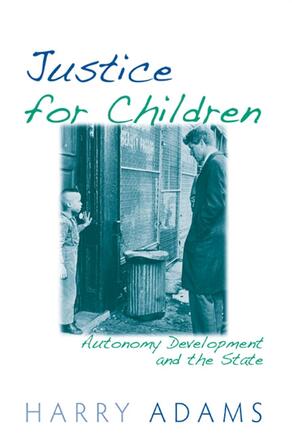
Justice for Children
Autonomy Development and the State
Alternative formats available from:
Applies the concept of personal and political autonomy to children and children’s development.
Description
In this groundbreaking theory of justice for children, Harry Adams takes the basic moral and political ideal of autonomy and shows what radical implications it has when applied to children and their development. Adams argues that it makes little sense to try to respect everyone's autonomy if enough attention hasn't been given to the ways that people do and do not develop autonomy in the first place, when they're young. Using the latest empirical research—from developmental psychology to population health and life course studies to primate ethnology and neurobiology—he explores how children develop different degrees of autonomy. Adams also discusses various public policies and programs that he feels any truly just society will have in place, in order to protect disadvantaged children's attainment of a minimal level of autonomy. He analyzes the ethical and practical appeals to, as well as the dangers and limits of, various family intervention programs, compulsory contraception programs, and early education programs, providing both a parental licensing model and an educational justice standard.
Harry Adams is Assistant Professor of Philosophy at Prairie View A&M University.
Reviews
"This interesting, ingeniously argued, insightful and informative and very timely book makes a convincing case for the state's duty to guarantee the conditions necessary for all children to attain a minimal degree of autonomy, by ensuring proper parenting and education. " — Metapsychology
"Justice for Children is a morally serious work; it is intended as a call for action as well as thought. " — Journal for Peace and Justice Studies
"The author writes about creating a world that is better for children, and writing as a philosopher, develops a sustained argument for improving children's lives. Offering radical conclusions and proposals, he touches upon profoundly important social justice questions of how to ensure that children are raised in a manner that maximizes their potential to lead happy and productive lives. " — Martin Guggenheim, author of What's Wrong with Children's Rights